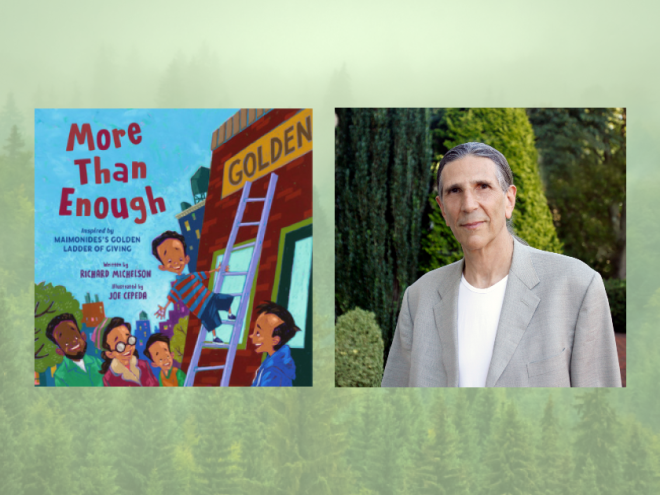The title of Richard Michelson’s new book of poems refers to the Yiddish expression Schluf gikher, men darf di kishn: “Sleep faster, we need the pillows.” The phrase evokes both abundance and scarcity — one imagines large families in crowded homes, coping with a shortage of resources with a surplus of humor. They have intractable problems with impossible solutions: “Sleep faster!”
As readers of his previous collections know, Michelson is interested in such problems. Sleeping as Fast as I Can examines racism and antisemitism, the tragedies of history and the present, faith and grief, and the betrayals of the body and the mind. His work reflects a deep concern for religion, love (especially familial love), and the music of poetry — even if these things are inadequate responses to the cruelties of the world.
His family crowds the poems, particularly his father, who was killed in a robbery of his Brooklyn hardware store when Michelson himself was a young father. Also featured is his now-elderly mother, who wanders through the shadows and light of dementia. He remembers his grandfather calling him a “Holocaust Jew”: “And not kindly. / My identity defined by the negative; not passion, not mystery, / not awe before the great unknown, but the burden of history / and fear.”
One way that Michelson’s poems bear that “the burden of history / and fear” is by recognizing that the burden does not belong to Jews alone — or even in particular. The book’s opening poem, “Prayer,” mourns “another Black motorist / murdered live on YouTube (shared, copied, spread virally), / tomorrow an Asian, Tuesday a Jew.” Michelson recognizes that the oppressed can also oppress, as in the poem “Truth,” in which an antisemitic slur uttered in his Massachusetts art gallery (“during negotiations for the Richard Yarde watercolor portrait of Sojourner Truth”) takes him back to his own past use of a slur for Romani. “The Roma too escaped to a strange land,” he reflects, “where they were mistaken / for Egyptians and disdained as thieving gypsies.”
God is here, often nearby, but is neither near enough nor powerful enough to lift the burdens of the present, let alone those of history. “The Eighth Night” begins, “A bullet behind the Gates of Heaven: one angel has fallen, / another fleeing. Higher pickets, God promises, wider posts.” The divine, in other words, offers no better remedies than we find here on earth. Trying to grasp the latest enormity, Michelson imagines smoke “pouring from God’s computer”: “The ovens of Sobibor, Hiroshima, Nine-Eleven, cannot compare / to the fumes rising from God’s mainframe.”
The language of Michelson’s poems is rich with the wryness, depth, and tragic echoes of Jewish humor. Yet he eschews both bitterness and archness. An award-winning writer of many picture books for children, including Too Young for Yiddish and the National Jewish Book Award – winning The Language of Angels: A Story about the Reinvention of Hebrew, Michelson possesses an imagination that is, ultimately, generous and gentle. As he observes in the final poem, “Coda”: “Odd, / how laughter’s portions are larger on the poorest menu. / Lord, give us the strength to feed each other and continue.”
Nan Cohen is the author of the poetry collections Rope Bridge and Unfinished City and the chapbook Thousand-Year-Old Words. The recipient of a fellowship from the Yetzirah conference for Jewish poets, her poems have recently appeared on The Slowdown and in The Beloit Poetry Journal.





